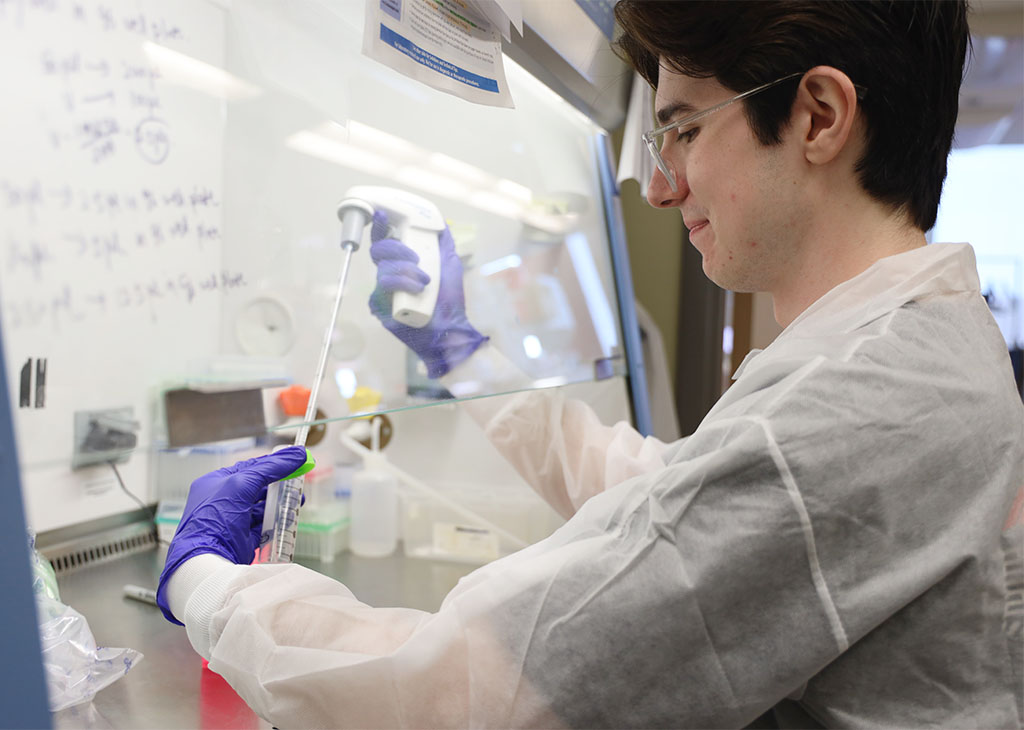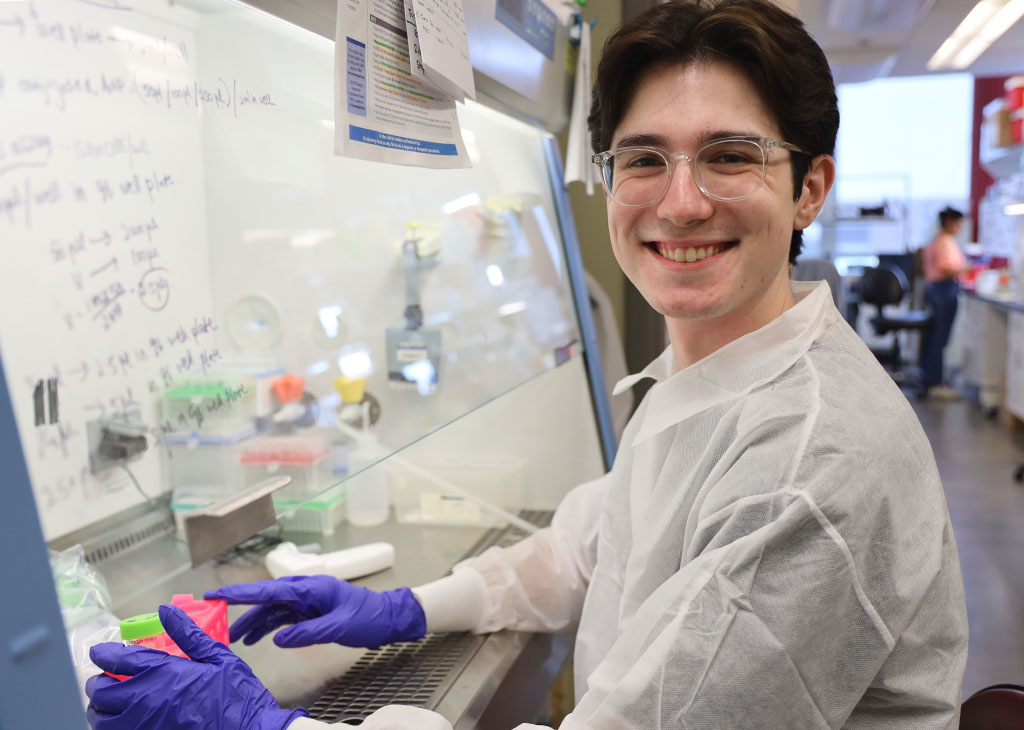First UH Sophomore to Earn Distinguished Recognition
Cole Woody, a biology major with a minor in chemistry at the University of Houston, has been named a recipient of the Barry Goldwater Scholarship, one of the nation’s most prestigious awards for students focused on research in natural sciences, mathematics, and engineering. The scholarship is often given to students who go on to win an array of nationally prestigious awards.

“We Want to Keep People Healthy and Happy”
Woody’s research reveals the impact of vaccines and other immunotherapies on cancer treatment. He developed the MHCole Pipeline, a bioinformatic tool that predicts peptide-HLA binding affinities with nearly 100% improvement in data processing efficiency. The goal of the MHCole Pipeline is to find cancer-specific targets and develop personalized vaccines to help patients have a better chance at survival and a much smaller chance of recurrence.
“Chemotherapy is like a nuclear bomb. It’s not specific, and it damages healthy cells,” said Woody. “These vaccines are more like a sniper. A lot more precise, only targeting cancer and leaving the rest unaffected.”

Woody is mentored by Dr. Preethi Gunaratne, Director, UH Sequencing Core and a professor in the department of Biology & Biochemistry within UH NSM.
“Cole’s work ethic and dedication are unmatched,” said Gunaratne. “Cole consistently worked 60-70 hours a week, committing himself to learning new techniques and coding the MHCole pipeline.”
Bringing Hope to the Future of Cancer Research
A Junior Research Associate at the UH Sequencing Core, Woody also works in Dr. Steven Hsesheng Lin’s lab at MD Anderson Cancer Center.
With plans to earn his MD-PhD, Woody has already been accepted into the Harvard/MIT’s MD-PHD Early Access to Research Training (HEART) program. He will be working under Dr. Arlene Sharpe, the Chair of Immunology at Harvard Medical School, studying how genetic engineering can be used to make cancer vaccines more effective.
“Most of the Principal Investigators I know who lead labs at the National Institute of Health are MD-PhD’s, and that’s something I’m interested in doing in the future,” said Woody.
Woody hopes the vaccines he is developing and the MHCole Pipeline’s specific and personalized approach to care will give patients the shot they deserve to live.
“Cole’s ability to independently design and implement such a transformative tool at such an early stage in his career demonstrates his exceptional technical acumen and creative problem-solving skills, which should go a long way towards a promising career in immuno-oncology,” said Gunaratne.
- Ashley Byers, College of Natural Sciences and Mathematics